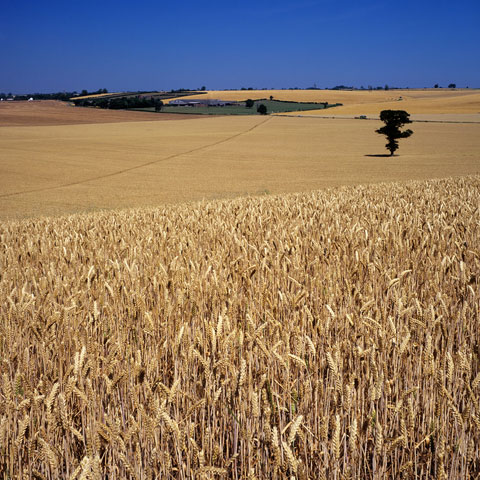Lancaster scientists to develop drought resistant crops
03/30/2012 00:00:00

Drought is becoming an increasing threat to world food security and scientists have been working for a number of years to find ways to maintain good harvests in poor conditions.
During times of water shortage – such as those being experienced by the UK this spring – plants suffer stress which affects the crop yield. Researchers at Lancaster have been exploring the role signals sent from plant roots play in this process and have made a series of breakthrough discoveries over the years which have led to improvements in food production from vineyards to vegetable and top fruit farms, to fields of cereal crops.
The European Commission has now funded two new major international projects in which Lancaster Environment Centre (LEC) scientists will play key roles.
Dr Ian Dodd will lead the Lancaster contribution to one of the EU projects ‘ROOTOPOWER’, worth €3m, investigating how roots from different varieties of tomato perform under salt, drought and low nutrient stresses and how this effects crop yields.
The research will use the tomato plant as a model species since it can be very easily grafted. Grafting is a surgical technique that joins genetically different shoot and root systems together, and is commonly used in commercial tomato production. Researchers will use the same variety of tomato for the shoots but will graft roots from a range of other tomato varieties onto this one shoot variety – this way they hope to discover which roots perform best in challenging conditions.
The work will be supported by a PhD studentship available from October 2012.
Meanwhile, Dr Sally Wilkinson will lead the Lancaster contribution to a second project, “EURoots”, also worth €3m, which aims to optimize water and nutrient acquisition by roots from the soil, in crops such as maize, rice and wheat.
Dr Wilkinson said: “This project will help farmers to face climate change, and to meet society’s growing demand for sustainable food production. We fully expect that it will be possible to cut down on the amount of water and fertilizers that farmers need to apply to their fields without reducing yields.
“Results will help crop breeders develop and choose varieties of our staple food crops which have the best root systems for coping with our increasingly stressful environment.”
Distinguished Professor Bill Davies CBE, Director of the Centre for Sustainable Agriculture at Lancaster University, said:
“We are delighted that the European Commission has recognized the importance of root signalling biology in influencing crop yields, and that Lancaster’s scientists have responded by co-ordinating two successful bids.”
For more information about applying for PhD studentships referred to in this article click here.